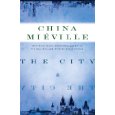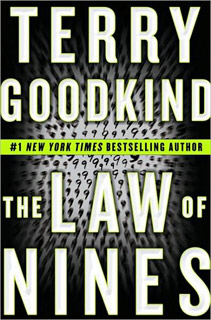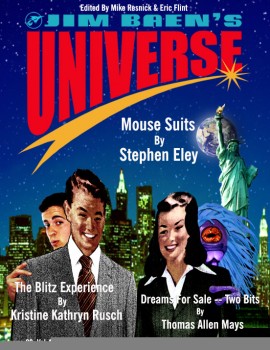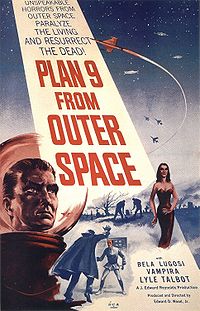Reimprisonment
 The much anticipated — and feared — “reimagining” of Patrick McGoohan’s classic cult TV series The Prisoner is scheduled for release on AMC in November. One good sign is that Ian McKellen is cast as Number Two (a role which, unlike the original series, will not revolve among multiple actors) and is (like the original) of fixed duration. James Caviezal is Number 6 and there are some interesting parallels here. Caviezal played Jesus in Mel Gibson’s (who was rumored to be a candidate for Number 6 in the various movie proposals over the year) The Passion of the Christ, controversial for its brutal, some would say sado-masochistic, portrayal of the Gospel stories. Like McGoohan, Caviezal is an observant Cathloic. Caviezal has made public stands on such issues as stem cell research and it is not inconceivable this might have affected his career in an industry that for the most part tilts left; McGoohan reportedly turned down the role of James Bond for moral reasons and insisted in his contract that he would not kiss women on-screen, particularly ironic given that The Prisoner was embraced by the sexual liberation advocates of the Sixties counter-culture for the program’s non-conformist ethos.
The much anticipated — and feared — “reimagining” of Patrick McGoohan’s classic cult TV series The Prisoner is scheduled for release on AMC in November. One good sign is that Ian McKellen is cast as Number Two (a role which, unlike the original series, will not revolve among multiple actors) and is (like the original) of fixed duration. James Caviezal is Number 6 and there are some interesting parallels here. Caviezal played Jesus in Mel Gibson’s (who was rumored to be a candidate for Number 6 in the various movie proposals over the year) The Passion of the Christ, controversial for its brutal, some would say sado-masochistic, portrayal of the Gospel stories. Like McGoohan, Caviezal is an observant Cathloic. Caviezal has made public stands on such issues as stem cell research and it is not inconceivable this might have affected his career in an industry that for the most part tilts left; McGoohan reportedly turned down the role of James Bond for moral reasons and insisted in his contract that he would not kiss women on-screen, particularly ironic given that The Prisoner was embraced by the sexual liberation advocates of the Sixties counter-culture for the program’s non-conformist ethos.
I’ve written about the original series here at this blog; you can take a look at a preview of the new series here. It actually looks promising, though of course it wouldn’t be the first time the trailer was better than the actual program. The new show echoes some of the original’s motifs, including Rover and McKellen’s “Britishness.” The Village is relocated to some kind of desert area ringed by mountains that reminds me of Arizona, and the setting seems to be some kind of take on mid-Fifties Levittown America, a perhaps not unsurprising choice given that this is from the network that has made its name with Mad Men.
I’m looking forward to seeing this but, alas, since I don’t have cable, here’s hoping the DVD version won’t be far behind.
Be seeing you.
 Intriguing premise — and something quite different from his previous work, which is always good to see in a favorite novelist — where two presumably East European cities somehow physically co-exist, with the inhabitants following strict protocols to avoid one another whenever their separate realities intersect. Grossman would be happy that it has compelling plotting; however, as a “police procedural,” Miéville doesn’t quite play fair. Part of the game in these kind of things is to at least give the reader a chance of figuring out the mystery of “whodunnit,” which I doubt anyone would be able to, although I’m guessing this isn’t Miéville’s concern here. I think he’s aiming at something more metaphorical along the lines of the existential spaces we all tread among the various realms of social interaction. Nonetheless, the unfolding of the mystery struck me as a little forced. Potentially, this could be the start of a series.
Intriguing premise — and something quite different from his previous work, which is always good to see in a favorite novelist — where two presumably East European cities somehow physically co-exist, with the inhabitants following strict protocols to avoid one another whenever their separate realities intersect. Grossman would be happy that it has compelling plotting; however, as a “police procedural,” Miéville doesn’t quite play fair. Part of the game in these kind of things is to at least give the reader a chance of figuring out the mystery of “whodunnit,” which I doubt anyone would be able to, although I’m guessing this isn’t Miéville’s concern here. I think he’s aiming at something more metaphorical along the lines of the existential spaces we all tread among the various realms of social interaction. Nonetheless, the unfolding of the mystery struck me as a little forced. Potentially, this could be the start of a series. I tend to go through my “to be read pile” looking for themes as an approach to wend my way through and choose what I want
I tend to go through my “to be read pile” looking for themes as an approach to wend my way through and choose what I want to attack next. These two are about the realities of war and the casualties of those who manage to survive. The first, Denis Johnson’s Tree of Smoke is a novel about the Vietnam war fiasco; the other is non-fiction, The Forever War
to attack next. These two are about the realities of war and the casualties of those who manage to survive. The first, Denis Johnson’s Tree of Smoke is a novel about the Vietnam war fiasco; the other is non-fiction, The Forever War  Regarding two earlier posts:
Regarding two earlier posts: So, here’s the bad news/goods news. First the bad news. A little while ago,
So, here’s the bad news/goods news. First the bad news. A little while ago, 
 This
This intriguing is
intriguing is  Okay, I’ll admit that in a past indiscretion I went to an adult store (this was in the days before the Internet, when it was the only place you could get such things) and bought an anatomically correct blow up doll. But, it wasn’t for me. Honestly. It was a joke gift for a bachelor party. Nonetheless, I want to take this opportunity to apologize to my congregation, my constituents and my family for behavior that was actually perfectly innocent, though I realize it could be construed by some as some kind of perverted behavior by those who haven’t as yet been caught in their own perverted behavior.
Okay, I’ll admit that in a past indiscretion I went to an adult store (this was in the days before the Internet, when it was the only place you could get such things) and bought an anatomically correct blow up doll. But, it wasn’t for me. Honestly. It was a joke gift for a bachelor party. Nonetheless, I want to take this opportunity to apologize to my congregation, my constituents and my family for behavior that was actually perfectly innocent, though I realize it could be construed by some as some kind of perverted behavior by those who haven’t as yet been caught in their own perverted behavior. Courtesy of The New York Times comes this report of
Courtesy of The New York Times comes this report of